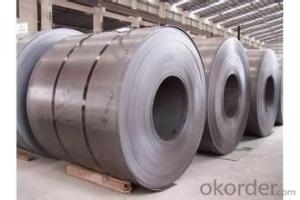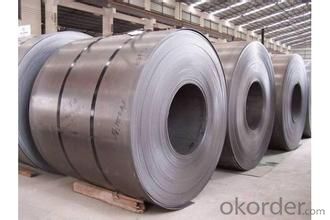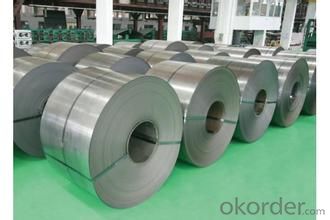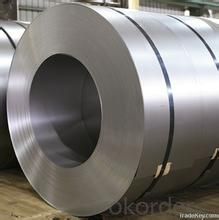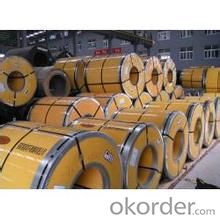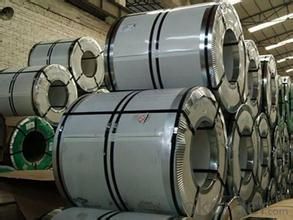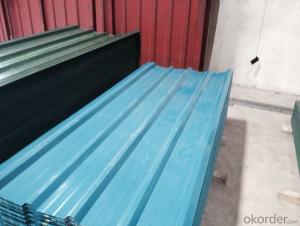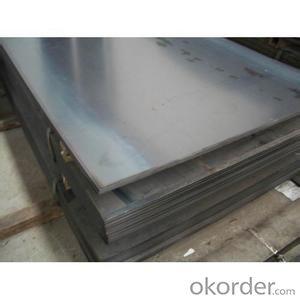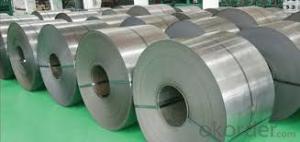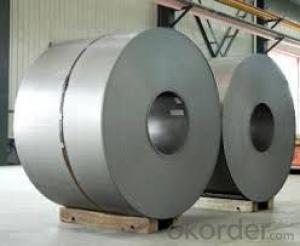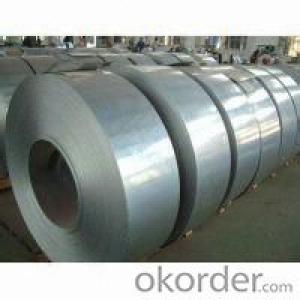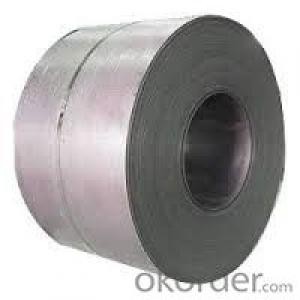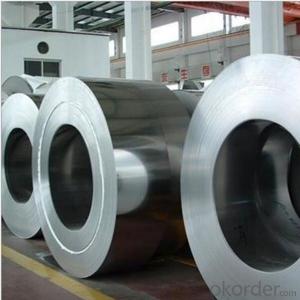hot rolled steel sheet DIN 17100 in good quality-SPHC
- Loading Port:
- Tianjin
- Payment Terms:
- TT OR LC
- Min Order Qty:
- 30 m.t.
- Supply Capability:
- 500000 m.t./month
OKorder Service Pledge
OKorder Financial Service
You Might Also Like
Product Description:
Rolled to its final dimensions while it’s hot enough to scale, our hot-rolled steel is an amalgamation of the various qualities of steel. It can be in the form of plates, sheets and coils. Our Hot-Rolled Steel Sheets and Coils are applied to a wide range of uses such as automobile, electrical appliance, machinery manufacturing, container manufacturing, shipbuilding, bridge, pipeline, and receive high acclaim from our customers for its excellent quality.
Description:
Product: | Hot Rolled Steel Coils/Sheets |
Material: | Q195,Q235,A36,SS400,S235JR,Q345,ST37-2, CCSB etc |
Standard : | JIS G3002 GB/T251B |
Technique: | hot rolled |
Thickness | 1.2mm to 200mm |
Tolerance of thickness: | :+/-0.03mm |
Width: | 750mm-2000mm |
Tolerance of width: | :+/-5.00mm (aiming to +/-2.00mm) |
Normal width: | 914mm, 1000mm, 1200mm, 1219mm, 1250mm,1500mm |
Length: | According to requirement |
Coil ID: | 508mm-610mm |
Coil Weight: | 10-25 Metric Tons |
Surface: | Black, Chromate, fingerprint resistant treatment, slight oiled or non-oiled, dry |
Port of Loading: | Tianjin/Shanghai port |
Packaging Details: | Standard export packing or according to the clients required |
Delivery Time | Within 30 days after received 30% deposit or workable L/C |
Payment Terms: | L/C,T/T |
Image:
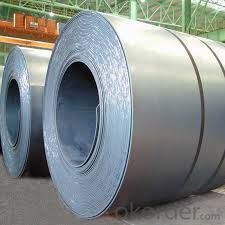
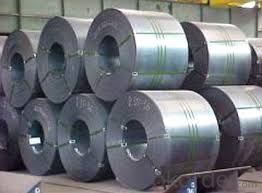
We can ensure that stable quality standards are maintained, strictly meeting both market requirements and customers’ expectations. Our products enjoy an excellent reputation and have been exported to Europe, South-America, the Middle-East, Southeast-Asia, Africa and Russia etc.. We sincerely hope to establish good and long-term business relationship with your esteemed company.
- Q: Can steel sheets be drilled?
- Yes, steel sheets can be drilled.
- Q: What are the different storage methods for steel sheets?
- Steel sheets can be stored in various ways, depending on specific requirements and available space. Here are some commonly used storage methods: 1. For small quantities or lighter sheets, a basic method is flat storage, where sheets are placed horizontally on a flat surface like the floor or metal racks. 2. Vertical storage is another option, which involves placing sheets against a wall or using specially designed vertical racks. This not only saves floor space but also allows for easy access and identification of different sheet sizes. 3. To store long and heavy sheets, cantilever racks with horizontal arms extending from a vertical column provide excellent support. These racks facilitate easy loading and unloading using forklifts or cranes. 4. Roll-out racks, equipped with rollers or ball bearings, work like drawers, allowing steel sheets to be easily rolled in and out. This method is ideal when frequent access to different sheets is required, as it offers good visibility and convenient retrieval. 5. A-frame racks, featuring angled arms resembling the letter "A," are suitable for storing large quantities of steel sheets. This method provides easy access while ensuring organization. 6. For maximum storage capacity and efficiency, automated storage and retrieval systems (AS/RS) come into play. These computer-controlled systems can be designed as vertical lift modules or robotic systems, automatically storing and retrieving steel sheets. When choosing a storage method, it's crucial to consider factors such as sheet size, weight, accessibility, and safety. Additionally, adequate measures should be taken to protect the sheets from moisture, dust, and other environmental factors that could potentially impact their quality.
- Q: What are the different sheet metal cutting techniques for steel sheets?
- There are several different sheet metal cutting techniques that can be used for steel sheets. Some of the most common methods include shearing, laser cutting, plasma cutting, and waterjet cutting. Shearing involves the use of a mechanical shear to cut the steel sheet along a straight line. Laser cutting uses a high-powered laser beam to melt and vaporize the steel, creating a precise and clean cut. Plasma cutting utilizes a plasma torch to heat and melt the steel, while a high-velocity jet of ionized gas blows the molten metal away. Waterjet cutting involves the use of a high-pressure stream of water mixed with abrasive particles to erode and cut through the steel sheet. Each technique has its own advantages and limitations, depending on factors such as the thickness of the steel, desired precision, and cost considerations.
- Q: Can steel sheets be used for manufacturing shipping containers?
- Yes, steel sheets can be used for manufacturing shipping containers. Steel is a common material choice for shipping containers due to its strength, durability, and ability to withstand harsh environmental conditions. Steel sheets are used to construct the walls, floors, and roofs of shipping containers, providing a secure and reliable structure for transportation and storage purposes.
- Q: Can steel sheets be used for architectural sculptures?
- Yes, steel sheets can be used for architectural sculptures. Steel is a versatile and durable material that can be easily manipulated to create intricate and unique designs. It offers strength and stability, making it suitable for large-scale sculptures. Additionally, steel sheets can be cut, welded, and shaped to achieve various forms and textures, allowing artists to bring their architectural visions to life.
- Q: Can steel sheets be used for electrical conductivity?
- No, steel sheets are not typically used for electrical conductivity as they are generally poor conductors of electricity.
- Q: What is the difference between a smooth and patterned steel sheet?
- A smooth steel sheet has a uniform surface without any visible texture or pattern, while a patterned steel sheet has a deliberate design or texture imprinted on its surface for aesthetic or functional purposes.
- Q: Can steel sheets be used for manufacturing security doors?
- Yes, steel sheets can be used for manufacturing security doors. Steel is a strong and durable material that provides excellent security and protection. It can withstand forced entry attempts and offers resistance to break-ins. Steel sheets are commonly used in the construction of security doors due to their high tensile strength, which makes them difficult to bend or break. Additionally, steel doors can be reinforced with additional features such as multiple locks, deadbolts, and security bars for enhanced security. Overall, steel sheets are a reliable choice for manufacturing security doors.
- Q: What are the fire resistance properties of steel sheets?
- Steel sheets have excellent fire resistance properties due to their high melting point and low thermal conductivity. They are able to withstand high temperatures for extended periods without losing their structural integrity, making them a popular choice for fire-resistant building materials. Additionally, steel sheets do not contribute to the spread of fire, making them a safe option in case of a fire outbreak.
- Q: Are the steel sheets resistant to scratching or abrasion?
- Steel sheets exhibit a remarkable resistance to scratching and abrasion. Renowned for its exceptional durability and strength, steel effectively wards off numerous forms of damage, such as scratches and abrasions. Its sleek and solid surface reduces susceptibility to scratches from sharp objects or rough surfaces. Moreover, the robust molecular structure of steel hampers easy wear and tear, guaranteeing its longevity in high-traffic or demanding settings. All in all, steel sheets prove to be an outstanding option for safeguarding against scratching or abrasion.
Send your message to us
hot rolled steel sheet DIN 17100 in good quality-SPHC
- Loading Port:
- Tianjin
- Payment Terms:
- TT OR LC
- Min Order Qty:
- 30 m.t.
- Supply Capability:
- 500000 m.t./month
OKorder Service Pledge
OKorder Financial Service
Similar products
Hot products
Hot Searches
Related keywords
